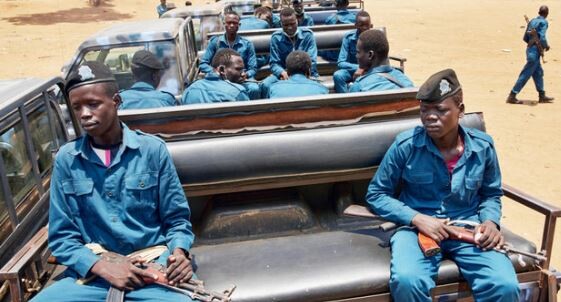The spokesperson of the South Sudan National Police Service (SSNPS) has said joint operations sectors in residential areas have been stopped from arresting and detaining people, saying they should only handle security emergencies and transfer suspects to police stations.
While addressing a press conference over the weekend, Gen. Daniel Justin Boulo told reporters that the police top brass are aware that some of the joint operations forces are involved in resolving cases instead of forwarding them to the police which is contrary to their mission and purpose.
The police spokesperson’s remarks follow complaints from members of the public about the joint operations forces arresting and forcefully shaving the heads of people with dreadlocks.
Gen. Boulo however stated clearly that this is not their work.
“Now those of the sectors (joint operations) are banned from arresting anybody. If there are any cases, they have to arrest the suspects and take them to the police stations. This is a very clear directive to the sectors,” he stated. “We even sometimes receive reports that they become chiefs and they are paid by people who have cases and then you sit and they solve the problem. They are not there to solve any problem.”
According to the police spokesperson, the joint operations forces are there to handle issues of crimes in suburbs that can lead to insecurity among the civil population and forward them to authorized police stations.
“Whenever there is an incident, they rush in and arrest the suspect and take them to the police stations where the cases are opened and investigations are carried out,” he said.
Gen. Boulo clarified that the purpose of mixing elements of the police with the army is because some soldiers are involved in most of the crimes and for their colleagues to handle them appropriately.
He also noted that the joint operations forces are not involved in the ongoing crackdown on gangs commonly referred to as the niggers and Toronto boys. He said large police units carrying out the operations are moving to identified hotspots to deal with gangs.




